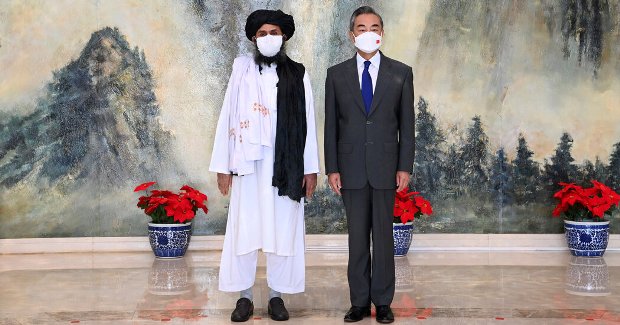China offers the Taliban a warm welcome while urging peace talks
By Steven Lee Myers
TIANJIN – China offered a high-profile public stage to the Taliban on Wednesday (28), declaring that the group rapidly retaking large parts of Afghanistan would play “an important role in the process of peaceful reconciliation and reconstruction” of the country.
Chinese officials began two days of talks with a delegation of Taliban leaders in Tianjin, a coastal city in northeastern China, significantly raising the group’s international stature after steady military gains that have taken advantage of the withdrawal of US and NATO combat forces from Afghanistan.
China’s foreign minister, Wang Yi, called the Taliban “a pivotal military and political force,” but urged their leaders “to hold high the banner of peace talks,” according to a statement by the Ministry of Foreign Affairs.
He pressed the group to work to burnish its diplomatic image and extracted a public pledge that the group would not allow fighters to use Afghan territory as a base to carry out attacks inside China, according to the statement.
The Taliban have been on a regional diplomatic blitz over the past month, visiting Tehran, Moscow and the Turkmenistan capital, Ashgabat, for talks with officials, as their military ascendancy in Afghanistan has grown. The increasing legitimacy bestowed on the insurgents by regional leaders has been met largely with public silence from the Kabul government.
The visit to Tianjin was the Taliban’s most significant diplomatic coup yet, and it underscored how much the former rulers of the country, who were toppled by the United States 20 years ago after the Sept. 11 attacks, have succeeded in reshaping how international powers deal with them.
The foreign ministry and the Chinese state news media showed Wang warmly greeting Mullah Abdul Ghani Baradar, the deputy leader of the Taliban, and also posing with other Chinese diplomats and all nine members of the Taliban delegation.
China has showed growing concern about the fate of Afghanistan. It shares a short border with China at the end of a narrow, mountainous region called the Wakhan Corridor. Last month, Taliban forces seized much of the province, which borders Xinjiang, a largely Uyghur Muslim region in western China where the government has detained hundreds of thousands in the name of fighting extremism.
Wang once again Wednesday criticized the United States and its NATO allies for a hasty withdrawal that could again plunge the country into chaos, according to the ministry statement.
Although it has not said so explicitly, China appears to be trying to act as a mediator between the Afghan government and the Taliban, encouraging some sort of political settlement.
-New York Times


